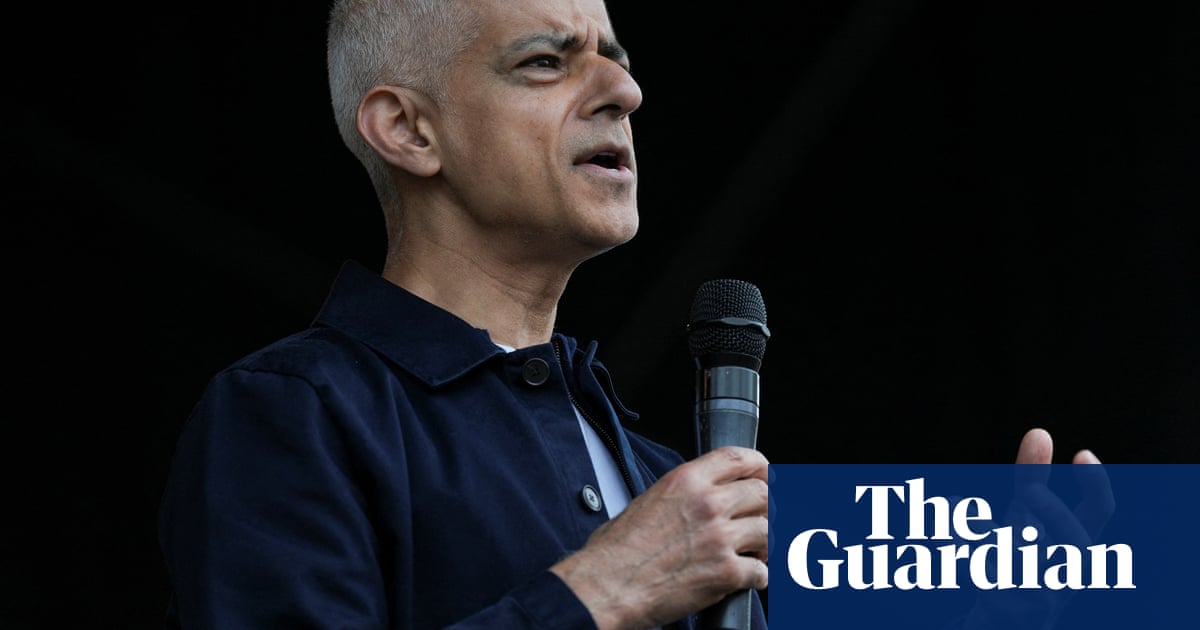Sadiq Khan is understood to be furious at the chancellor,Rachel Reeves, over a lack of funding for London in the forthcoming spending review, with sources close the mayor suggesting the capital will get none of its key transport asks.
The mayor is also understood to share the concerns of senior Met police officers thatLondonwill not get a substantial uplift in funding.
The Met police commissioner, Sir Mark Rowley, has already written to the chancellor warning about the effects on tackling crime if there is no serious increase in policing budgets.
A city hall source said it would “unacceptable if there are no major infrastructure projects for London announced in the spending review and the Met doesn’t get the funding it needs.”
Khan is also understood to have asked for powers to introduce a tourist levy in London, which have been rebuffed – though such changes would be likely to take effect at a budget rather than spending review.
The mayor – who has rarely criticised the Labour government – had asked for two key transport investments – an extension of the Docklands Light Railway to Thamesmead, and to complete the extension of the Bakerloo line.Transportfor London’s day-to-day costs are met by fares.
“Over the past nine years as mayor, Sadiq has fought to deliver for London – in the best interests of Londoners and the whole country,” a source close to the mayor said.
“We know that when London does well it means the whole country does well, and that it will simply not be possible to achieve national growth ambitions without the right investment and growth in our capital.
“We must not return to the damaging, anti-London approach of the last government, which would not only harm London’s vital public services, but jobs and growth across the country.”
A Treasury source declined to comment on the specifics, but said London had been granted huge benefits by the government, including support for the third runway at Heathrow – which Khan opposed – and expansion of Gatwick, Luton and City airports.
They said the government had expanded late licensing and given approval to pedestrianise Oxford Street, as well as allocating money so HS2 would run to London Euston. They said city hall, which provides free school meals for all pupils in London, would also have cash freed up by the Treasury’s new commitment to fund free school meals for children with parents on universal credit
Khan will make the case that investment in London has growth benefits across the UK. “We need backing for London as a global city that’s pro-business, safe and well-connected,” a source close to the mayor said.
“It’s absolutely crucial at this time of global uncertainty that we send the right message to attract investment, which helps to bring prosperity to the whole of the UK.
“It’s also important to recognise that parts of London still have some of the highest levels of poverty anywhere in the UK. Sadiq will always stand up for London and has been crystal clear that the way to level up other regions is not to level down London.”
Last week, Reeves announced £15bn more on transport infrastructure to be spent outside London and the south-east, part of what was seen as rebalancing of government priorities where London had mostly benefited from infrastructure spending.
Research released on Monday from IPPR North found that if the north of England had received the same per person spending as the capital, it would have received £140bn more – enough to build seven Elizabeth lines.
Over the decade to 2022/23, each year London received £1,183 per person, while the north of England got £486 per person. The analysis shows that the Midlands fared even worse – receiving just £455 per person – with the East Midlands receiving the lowest investment of every nation and region of the UK at just £355 per person.
